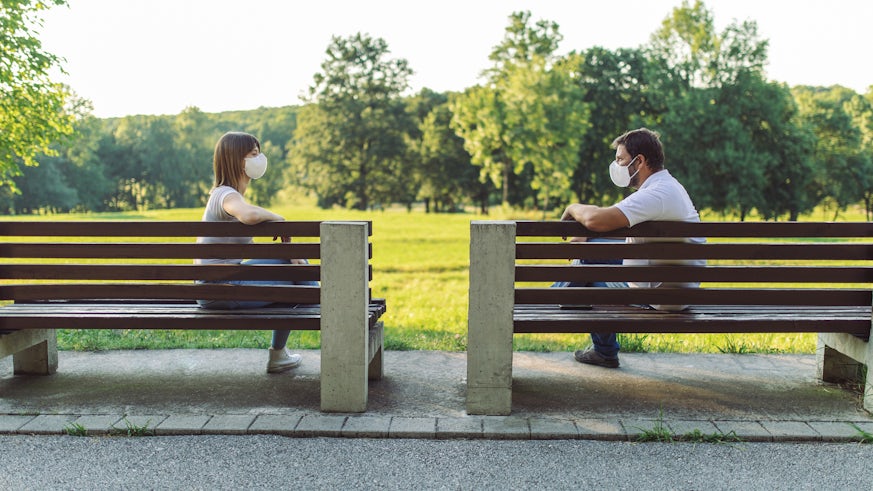Gardens and green space linked to better mental health during pandemic, study shows
16 April 2021

People with green space on their doorstep or access to a private garden reported better health and wellbeing during and after the first lockdown in the UK, according to a new study.
Researchers from Cardiff University and Cardiff Metropolitan University have shown that people with a garden and a park nearby were more likely to say they were feeling calm, peaceful and had a lot of energy as compared to those with no access to a garden or living further away from a green space.
Official figures show that around one in eight households in Great Britain had no access to a private or shared garden during the coronavirus pandemic, and that just a quarter of people in Great Britain live within a five-minute walk of a public park.
The researchers say the study is the first to assess the impact of green space during the pandemic, and that it highlights the huge benefits for both physical and mental health and making our communities more resilient.
In the study, published in the journal Landscape & Urban Planning, the researchers surveyed 5,556 people about their home and neighbourhood, as well as their perceived mental health and wellbeing, at two intervals – the first in March/April 2020 during the first peak of the pandemic and again in June/July 2020 after the first peak had subsided.
For the first 2-3 months of the lockdown, individuals were only permitted to leave their home for essential travel, such as food shopping, and for outdoor exercise once a day.
The survey formed part of the COVID-19 Public Experiences (COPE) study, with most participants recruited through Health Wise Wales (HWW), an existing national longitudinal study funded by the Welsh Government.
Among a wide-range of topics, participants were specifically asked if they felt calm and peaceful and had a lot of energy, or if they felt downhearted and blue, with answers provided on a scale of zero to five. Similarly, the participants were asked how they would rate their health in general from one to five.
The participants were also asked about their access to a private garden and how far they lived from the nearest green space, such as a park, woodland or playing field.
Subjective wellbeing was shown to be significantly higher in the post-peak period when lockdown restrictions were being eased than in the first peak of the pandemic when lockdown restrictions came into force in the UK.
People living a five-to-10-minute walk or more than a 10-minute walk away from public green space had lower levels of subjective wellbeing than those living less than a five-minute walk away, whilst those with access to a private garden had higher levels of subjective wellbeing than those without a private garden.
The results further show that, during the first peak of the pandemic, access to green space was particularly important for households without private gardens. Being close to a public green space or private garden had a greater health protective effect for those who did not have access to a private garden.
Though a statistically significant link was found between access to a private garden and the wellbeing of men, no evidence was found for specific groups benefitting more than others.
“What this shows is that both gardens and parks have been essential for people’s health and wellbeing during the pandemic, especially when the toughest restrictions were in place,” said lead author of the study Professor Wouter Poortinga, from Cardiff University’s Welsh School of Architecture and School of Psychology.
“Public parks and other green spaces have been a lifeline for many in these difficult times.”
“We have to make sure that everybody has access to such spaces, not only now but also in the future. This can be done by planting more trees and creating new parks, but also by protecting the few green spaces we have left.”
Co-author of the study Dr Rhiannon Phillips, from Cardiff Metropolitan University, said: “During the pandemic, green spaces have offered us a place to connect with nature, be physically active, and socialise when regulations allow. This has made spending time in private gardens and public green spaces vital to reducing the impact of the pandemic on people’s health and wellbeing.
“Taking care of our green spaces is vitally important in enabling us to take care of ourselves. We need to value our green spaces and use them respectfully, making sure we don’t damage these environments and take our litter home, so that they are there for all of us to enjoy.”
The research was funded through the Welsh Government’s Sêr Cymru scheme.
